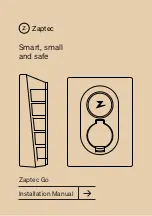
Battery
•
Check and recharge as necessary. Keep
connections clean.
•
If storing your vehicle for more than 30
days without recharging the battery,
we recommend that you disconnect
the battery cables to maintain battery
charge for quick starting.
Note:
It is necessary to reset memory
features if battery cables are disconnected.
Brakes
•
Make sure the brakes and parking brake
release fully.
Tires
•
Maintain recommended air pressure.
Miscellaneous
•
Make sure all linkages, cables, levers
and pins under your vehicle are covered
with grease to prevent rust.
•
Move vehicles at least 25 ft (7.5 m)
every 15 days to lubricate working parts
and prevent corrosion.
Removing Vehicle From Storage
When your vehicle is ready to come out of
storage, do the following:
•
Wash your vehicle to remove any dirt
or grease film build-up on window
surfaces.
•
Check windshield wipers for any
deterioration.
•
Check under the hood for any foreign
material that may have collected
during storage such as mice or squirrel
nests.
•
Check the exhaust for any foreign
material that may have collected
during storage.
•
Check tire pressures and set tire
inflation per the Tire Label.
•
Check brake pedal operation. Drive
your vehicle 15 ft (4.5 m) back and
forth to remove rust build-up.
•
Check fluid levels (including coolant,
oil and gas) to make sure there are no
leaks, and fluids are at recommended
levels.
•
If you remove the battery, clean the
battery cable ends and check for
damage.
Contact an authorized dealer if you have
any concerns or issues.
263
Super Duty (TFA) Canada/United States of America, enUSA, Second Printing
Vehicle Care
















































